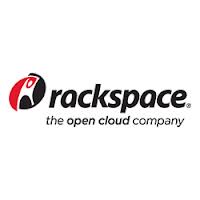 Many businesses are turning to cloud computing to save money, operate more efficiently and maintain backups. The cloud enables them to continue functioning even after events such as a catastrophic data loss, lengthy power outages or a natural disaster. Employees can also work remotely, such as with a laptop, tablet or smartphone as they access software and data in the cloud through secure connections.
Many businesses are turning to cloud computing to save money, operate more efficiently and maintain backups. The cloud enables them to continue functioning even after events such as a catastrophic data loss, lengthy power outages or a natural disaster. Employees can also work remotely, such as with a laptop, tablet or smartphone as they access software and data in the cloud through secure connections.
If your organization is reluctant to use cloud computing services because of concerns about security when moving data off-site, you should be aware that there are hosting options that address your security needs.
You may store sensitive data on your company’s servers, such as personal details of clients and customers that criminals could use to commit identity theft. If you keep medical information records, the government’s Health Insurance Portability and Accountability Act regulations require that you keep them secure and private. Your financial transactions may be subject to Payment Card Industry Data Security Standard audits.
It’s understandable that an organization charged with protecting such confidential data wouldn’t want to risk endangering its customers or becoming subject to a lawsuit by entrusting this information to another company’s servers. However, virtual private servers, private cloud and hybrid cloud solutions are designed to keep your company in compliance with privacy and security regulations.
Virtual private servers
Virtual private servers, such as those offered by cloud host Rackspace, offer companies reliable options for storing data securely. You can choose how much storage you want to use, and pay for more as your needs increase.
It’s more efficient to purchase additional secure hosting storage with VPS than to try to predict exactly how many servers you would need to buy to keep it all stored in your own facility. Otherwise, you may wind up with excess servers at your location, which is a waste of money.
Private cloud
A private cloud server gives you complete control over your data. You will have your own dedicated server that no other entity can access.
You need to verify that your service provider will offer you PCI-compliant private cloud computing to make sure that your transactional data is secure and protected. If you deal with patient’s medical information, you need to make sure that your provider offers HIPAA-compliant private cloud.
Private cloud computing works in this context when you have identification and authentication processes in place and protocols to make sure there is no unauthorized access or accidental releases of data.
Hybrid cloud
The hybrid cloud enables companies that want to take advantage of cloud computing while holding onto sensitive data locally to use the best of both worlds. You can use public cloud computing to handle the number crunching —with encryption, of course —, with your sensitive data being stored safely in private cloud storage.
This frees up your IT department from having to maintain software with updates and patches, for example, as well as not having to worry about purchasing additional software usage licenses when you hire a new group of employees. You also don’t have to worry about purchasing additional servers to keep up with computing demands, since you’ll be able to alter your computing power whenever you need.
It’s possible that the people in your organization responsible for data security will want to reconsider staying out of the cloud after they realize that safety protocols are in place to satisfy both governmental regulations and the company’s internal rules. By focusing on your core strengths and relying on a third party to handle your data and software needs, you’re more nimble and competitive in your industry.


